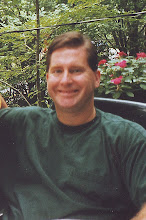If ‘philosophy’ means ‘the love of wisdom’, then the Greatest Philosopher is the person who loves wisdom most. But let us be clear that wisdom refers not to a storehouse of facts. If one wants answers, one should take care to avoid the true philosopher, for they are no provider of solutions. The true philosopher sees the world as something to be explained, but is aware also that we cannot give that sought-after final explanation: every answer submits to another question, truth is always beyond us. The true philosopher is also a visionary; one who sees possibilities, discovers new questions where answers have been placed. But the philosopher’s vision isn’t merely skeptical, aiming only to undermine and overturn: the philosophical vision involves being able to see the validity of opposing conclusions drawn from the same argument. So the philosophical vision is by nature paradoxical. The philosopher does not lead an argument, but follows it, and does not choose one way or the other on this journey, but transcends them both, setting forth heavy-headed down both paths, and recognizing that “the way up and the way down are one and the same.” The moment a thinker chooses one path, one direction, over another, philosophizing ceases, and the thinker falls into ‘dogmatic slumber’. The greatness of the true philosopher is not solely the possession of such vision, however. The ability to help others see with philosophical eyes is the other mark of wisdom. And there has been one thinker who kept under his gaze both thesis and antithesis, attracted not by either, but by both, and who has helped us to see this 'fluxed' world through the lens of his words: Heraclitus.
As always, I look forward to your comments
Thursday, May 20, 2010
Subscribe to:
Post Comments (Atom)





I used to pray for wisdom. My prayers must have been answered because I soon realized I knew very little about most things. What is the relationship between wisdom and knowledge? Can someone be wise without knowledge?
ReplyDeleteDear Anonymous,
ReplyDeleteIt is the wise man who knows that he does not know. You’ve come to that important realization, which is a great starting point. While knowledge has its own small (but crucial) role in achieving wisdom and understanding, it is really reason that does the hard work to determine how we live our lives. You can live wisely while you accumulate knowledge by making rational choices in your life. Begin acting wisely now through your reason while you amass knowledge. I hope this is helpful.
Kevin,
ReplyDeleteThank you for your kind reply. It is the wise man who knows what he does not know.
Your answer seems to suggest that I have just recently come to the realization that I am not very knowledgable. Actually, I made that determination many years ago. It has led to years of mild depression, but I won't bother you with my problems.
You also suggest that I "begin acting wisely." Are you suggesting that I have not acted wisely in the past?
I think you are taking what Kevin is saying too literally and personally. It is not that you are not knowledgeable person. It's just that compared to the amount of knowledge that can be obtained in this universe, humans have virtually no knowledge whatsoever. There is an infinite amount of things yet to be discovered.
ReplyDeleteAlso, he says "Begin acting wisely now THROUGH YOUR REASON while you amass knowledge". He is offering you a new way in which you can consider yourself wise.. not suggesting that you have never been wise. You took the first three words out of context.
Revealing interchange of comments to your wondreful inquiry,kevin. Both the Annonymus and Danielle give us up good insights. I aggre that knowledge is just another tool we use in life, the true essence of being human lays deep beyond it. Humility is gold not to be hidden.
ReplyDeleteI enjoy Sartre wisdom"we are what we are not, and we are not what we are". A CONFUSED Friend